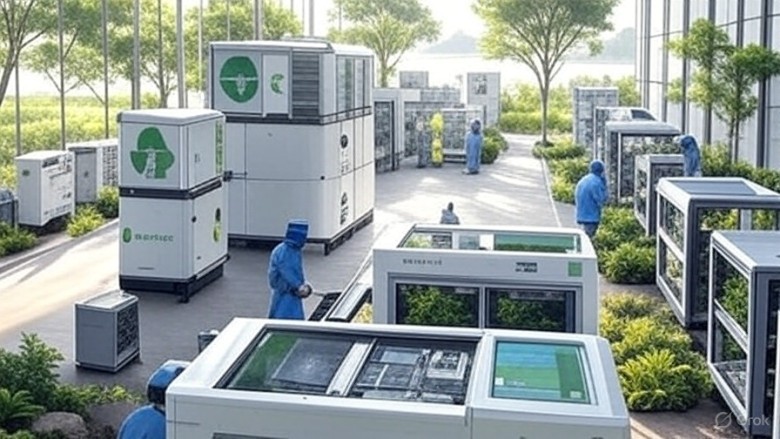views
Delhi's E-Waste Eco Park: India's Leap Towards a Circular Economy

Delhi is embarking on a monumental journey towards a sustainable future with the development of India's first integrated 'E-Waste Eco Park' in Holambi Kalan. This ambitious project marks a significant stride in the nation's efforts to combat the ever-growing challenge of electronic waste and embrace the principles of a circular economy.
A Pioneering Initiative for a Greener India
Spread across 11.4 acres, the E-Waste Eco Park is not just a recycling facility; it's a commitment to a cleaner, healthier, and more industrially advanced Delhi. Spearheaded by the Delhi Government, this park is designed to process an impressive 51,000 metric tonnes of e-waste annually, encompassing all 106 categories outlined under the E-Waste Management Rules, 2022. This comprehensive approach ensures that nearly 25% of Delhi's total e-waste will be formally and scientifically processed within five years of the park's operation.
Transforming Waste into Wealth and Opportunities
India currently stands as the world's third-largest generator of e-waste, with Delhi contributing a significant portion of this staggering figure. The informal recycling sector, while playing a role, often lacks environmentally sound practices, posing serious health and environmental risks. The E-Waste Eco Park aims to bridge this gap by bringing cutting-edge green technology and formalizing the sector.
This pioneering facility will feature specialized zones for dismantling, refurbishing, component testing, and plastic recovery. It will also house a dedicated second-hand electronics market, promoting reuse and reducing the need for new product manufacturing. Beyond environmental benefits, the park is projected to generate over Rs. 350 crore in revenue and, more importantly, create thousands of "green jobs." This includes skill development centers to train and integrate informal sector workers into a safer, more technologically competent ecosystem, improving livelihoods and promoting social inclusion.
Key Features and Benefits of the E-Waste Eco Park:
- Massive Processing Capacity: Capable of handling 51,000 metric tonnes of diverse e-waste annually.
- Resource Recovery: Extracts valuable materials like gold, silver, copper, and rare earth metals, reducing reliance on virgin resources and conserving energy.
- Environmental Protection: Prevents hazardous materials from contaminating land, water, and air, mitigating health risks associated with informal recycling.
- Circular Economy Model: Promotes reuse, refurbishment, and recycling, transforming waste into valuable inputs for new products.
- Green Job Creation: Generates thousands of employment opportunities, especially by formalizing and upskilling workers from the informal sector.
- Sustainable Infrastructure: Developed under a Public-Private Partnership (PPP) model, ensuring efficient operation and long-term sustainability.
- Skill Development: Provides training and upskilling for workers involved in e-waste handling, promoting safe and scientific practices.
The construction of this landmark project is expected to be completed within 18 months, with a global tender soon to be issued to attract the best green technology partners. The Delhi E-Waste Eco Park is a testament to India's commitment to building a "Viksit Delhi" – a smart, sustainable, and inclusive capital, setting a national benchmark for responsible e-waste management and inspiring similar initiatives across the country. This truly signifies the dawn of a green revolution in India's waste management landscape.




















Comments
0 comment